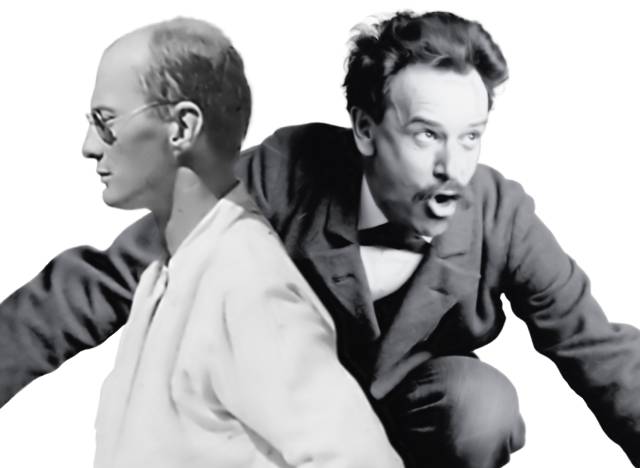Welcome to the Public Domain: Boas and Malinowski

We want to know whether you have come to stop our dances and feasts, as the missionaries and agents who live among our neio-hbors try to do. We do not want to have anybody here who will interfere with our customs. The agent has told us that he would send a man- of-war if we should continue to do as our grandfathers and great- grandfathers have done. […] We will dance when our laws command us to dance, we will feast when our hearts desire to feast. Do we ask the white man, ‘ Do as the Indian does ‘ ? No, we do not. Why, then, will you ask us, ‘ Do as the white man does ‘ ? It is a strict law that bids us to dance. It is a strict law that bids us to distribute our property among our friends and neighbors. It is a good law. Let the white man observe his law ; we shall observe ours. And now, if you are come to forbid us to dance, begone ; if not, you will be welcome to us.
This was the way Franz Boas transcribed the saying of the O’wax̱a̱laga̱lis leader from the Kwagu’ł tribe in an article published by Popular Science in 1888. It refers to a native festival known as Potlatch that Boas has documented. The celebration has a ritual purpose but also an economic one: it is a way of redistributing goods from the prosperous groups to the ones that were less lucky that season. One way of exchange regulated by very different values to the market economy that is well known by the white man. What gives someone prestige and social recognition in the Potlatch is the capacity of giving goods to the others and no the cleverness of accumulating and taking the biggest part. Canadian and American governments have considered that it was all about a completely and worthless custom, a waste an unproductive ceremony and “opposed to the civilized values”. And they have made the effort to forbid such an economic heresy for a while.
The Kula, known as the kula exchange as well, is a ceremonial exchange done by eighteen island communities from the Massin Archipelago in the Occidental Pacific and it involves millions of people. Basically, they exchange two symbolic goods: bracelets and necklaces made of shells (Soulava and Mwalli). I.E., if you receive a bracelet you must five a necklace, but the value of the objects is not fixed, it is a gift and each one decides how to give the favor back. There is no place for bargaining. As in the Polatch, it is about giving and gaining prestige and reputation and keeping peace with the neighbours. The kula was the main subject of study of an ethnographic work published in 1922 —that is a classic now beyond the anthropology field— and gave his author universal popularity. “Argonauts of the Western Pacific”, written by Bronislaw Malinowski. The book was the result of a long stay with the natives of the Trobriand´s islands.
This kind of work on pioneer´s field about rituals such as the Potlatch and the Kula were the triggers of the The Gift from Marcel Mauss in 1925 which led to a series of investigations about “the gift economy” (that goes until Eric S. Raymond in the 90s). It studies how exchange and social prestige systems based on the gift, solidarity and reciprocity work. When certain social dynamics related to the use of IT are analysed, such as the collaborative communities of free software, the P2P nets exchange or the DIY communities, there is an unexpected common thread that connects the rituals, customs and values of the online tribes of the new millennium, and the archaic groups of hunters-collectors studied by Boas and Malinowski by the beginning of the century. Our symbolic Soulava and Mwalli could be “Attribution”, “Copyleft” or “GPL” and our economic goods to give are code and knowledge. It has been more than a century since the obsolete evolutionist groups have stated that `cultural evolution´ was normally a native of savagery, underdeveloped stated and civilization, but it seems that with the internet –and probably for Boas´ happiness- we are returning to the civilized practices and values of savagery: the winner is the one who gives more. [to be continued, work in progress!!]
Spanish to english translation: Bibiana Ruiz. Thank you!!